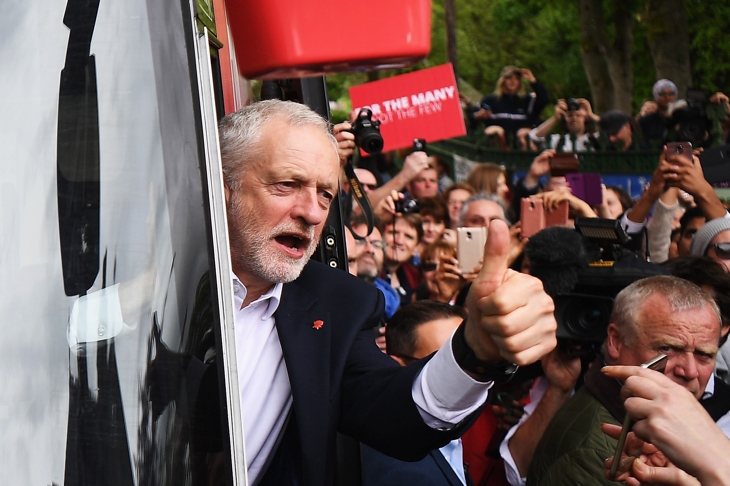We’re four days into 2018 and Tony Blair has kindly graced the nation with his first Brexit intervention of the new year. Proving old habits die hard, the former Prime Minister has written a blog criticising the government’s handling of Brexit. Blair claims Theresa May is on course to negotiate a deal that is the ‘worst of all worlds’ – allowing the Government to claim Brexit victory but in reality meaning the UK has lost its seat ‘at the table of rule-making’.
However, the main target for his ire is Jeremy Corbyn’s Labour. Blair claims the party’s confusing ‘cake and eat it’ approach of leaving ‘the’ single market but being in ‘a’ single market means ‘the handmaiden of Brexit will have been the timidity of Labour’. He urges the party to adopt a new approach, campaign for a second referendum and fight for European reform – thereby making Brexit an issue owned solely by the Conservatives.
Now there’s probably a higher chance of Dennis Skinner joining the Tories than Jeremy Corbyn taking advice from Tony Blair. But Blair’s intervention does raise an important question: how long can Labour’s clever* Brexit strategy last?
As I’ve written before, although Labour tend to change their Brexit position on a day-to-day basis, so far it doesn’t appear to have done the party much harm. If Labour were in government, the limits of their best of both worlds position – ‘have your cake and eat it 2.0’ – would be quickly exposed in the negotiations. But in opposition being vague works rather well and it has allowed the party to keep many Brexiteers and Remainers on side. Every time one of the shadow cabinet gives an interview, hacks and politicos try and work out what it means in technical terms – even though the people saying it aren’t sure themselves. It might be intentional, it might be incompetent – either way fudging the party’s position is more likely to win votes than the alternative.
It’s the party’s most clear cut moves that have proved the most difficult – such as the decision to vote against the second reading of the EU withdrawal bill as it is easier for the Tories to attack than all of these slightly contradictory statements. This presents the party with a dilemma when Parliament eventually has to vote on Theresa May’s deal. So far, that ‘meaningful’ vote appears to consist of taking the deal on the table – or leaving the EU with no deal at all. It follows that Blair is right to highlight the fact that the party will eventually have to make a choice: whether to endorse the government’s deal or embrace a no-deal scenario.
To many, the idea of voting down the government deal is unthinkable and, as things stand, it’s hard to see how there would be the numbers to do this. However, there are some Conservative eurosceptics who ask: what Opposition could resist the chance to bring down the government? They point to the Maastricht Treaty where Labour voted against it on the grounds that Britain was opting out to the social chapter even though they agreed with the treaty in principle.
Whichever option the party chooses, their ‘have your cake and eat it 2.0’ strategy will come to an abrupt end. Although the party can no doubt spend the next election campaign claiming that they would have negotiated a better deal, they will be called up on what they did or didn’t facilitate to happen. With research today showing the vast majority of Labour members want a second EU referendum, any decision the party makes will upset one side of the party – whether its Europhile members or working class Labour voters. Tony Blair by no means has the solution but he is right to point out the eventual flaw in Labour’s current approach.
*May not be intentional







Comments